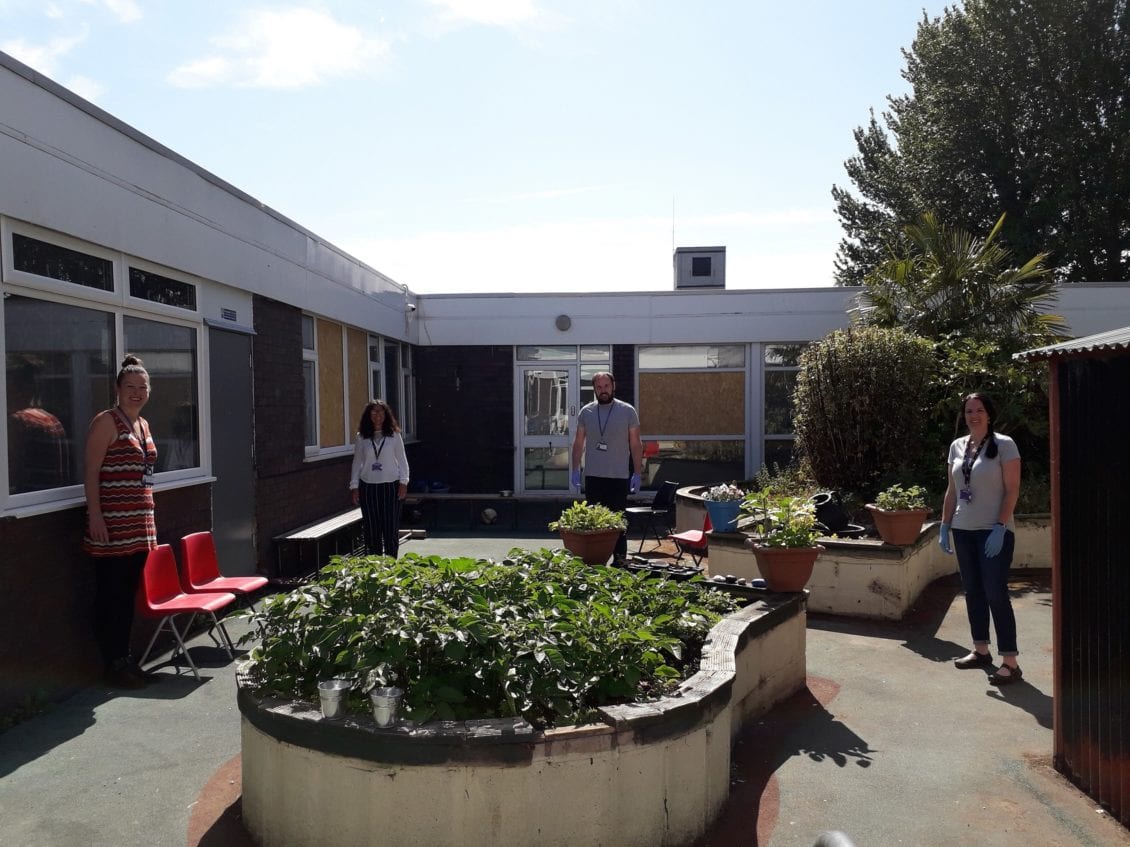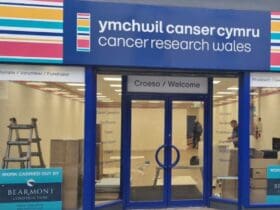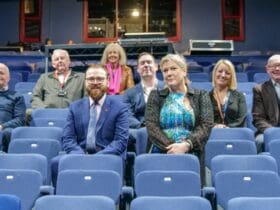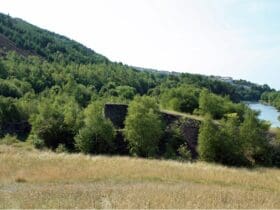People experiencing homelessness in Flintshire during the coronavirus pandemic have been supported by a new service, Glanrafon Homelessness Hub, which has rapidly responded and adapted to the crisis.
In the National Welsh Government rough sleeper count in October 2019, there were 10 people rough sleeping recorded in the county. The number had tripled from three people since 2017. A pilot emergency bed scheme for rough sleepers had been operating since 2018 but this had come to an end in September 2019.
The former Glanrafon day centre on Deeside was used by Flintshire Council as a temporary night shelter during extreme weather. In February this year, the Council partnered with leading Welsh homelessness and rough sleeping charity, The Wallich, to develop and repurpose the centre as a homelessness hub, open every night, 365 days a year, offering warmth, meals, and importantly, advice and support to move away from homelessness.
As the coronavirus situation worsened, and the urgency to get people unable to self-isolate off the streets and into safety became a priority, the partnership between the local authority and the charity increasingly drew upon its wider partners to include police, harm reduction agencies, health services and others intent on solving the issue of people forced to sleep rough during lockdown.
Solutions included an urgent increase in staffing so the Glanrafon Hub could operate 24 hours a day enabling people to remain indoors day and night in line with Welsh Government guidance, and the addition of seven self-contained cabins on the premises providing a safe place for people to self-isolate away from others if they developed symptoms. Thanks to the efforts of all involved and some innovative thinking, the partnership has worked tirelessly together to accommodate 50 people experiencing homelessness since lockdown began.
The Glanrafon Hub offers an evening meal, breakfast, showers, laundry, specialist advice and access to other agencies. It caters for people of all genders and people are even able to bring their dogs. The Wallich’s specially trained staff have been working around the clock throughout the coronavirus crisis to ensure they get people off the streets and give them the help and support they need to turn their lives around.
Sophie Haworth-Booth, Area Manager for North & Mid Wales at The Wallich, said, “It has been a challenge responding to COVID-19 whilst continuing to deliver critical support and accommodation services, but I’m incredibly proud of how our staff have reacted quickly to changes in the way they work and have gone above and beyond to support people who have become homeless during the pandemic. Our colleagues in the Council, BCUHB and Police have also been incredibly supportive during this time.”
Thanks to Flintshire Council, 18 people have already moved on from the hub into more permanent accommodation in the community. People are also receiving support to manage their mental and physical health and finances.
Martin Cooil, Housing & Prevention Service Manager from Flintshire Council said, “The Covid 19 pandemic has presented significant changes for everyone in their daily lives and these are particularly challenging for those people who don’t have a place to call home and may face sleeping rough.
Martin Cooil, Housing & Prevention Service Manager from Flintshire Council said, “The Covid 19 pandemic has presented significant changes for everyone in their daily lives and these are particularly challenging for those people who don’t have a place to call home and may face sleeping rough.
Changing the way we deliver services from the Glanrafon Homelessness Hub and working with The Wallich and other partners has provided a safety net for some of the most vulnerable members of our community at this time. This has made a real difference and has meant nobody has had to sleep rough in Flintshire during the current emergency period. Our focus now turns to how we ensure people are supported into long term accommodation so nobody has to return to the streets.”
David* 46, accessed the shelter on 26 March; he became homeless after a relationship breakdown. David had some alcohol misuse issues and mental ill health. He engaged well with support staff at Glanrafon and with other agencies who were brought in to support him with his mental health.
On 10 April, David moved on to shared accommodation in the community, but has kept in touch with the service and said that he could not thank the team enough for all the support. He now has his own tenancy, has had an interview for employment and is doing well.
The partnership, who came together to make the service adaptable and responsive during the crisis, has now turned attention to planning what happens when lockdown ends, ensuring no-one returns to the streets.








Leave a Reply
View Comments